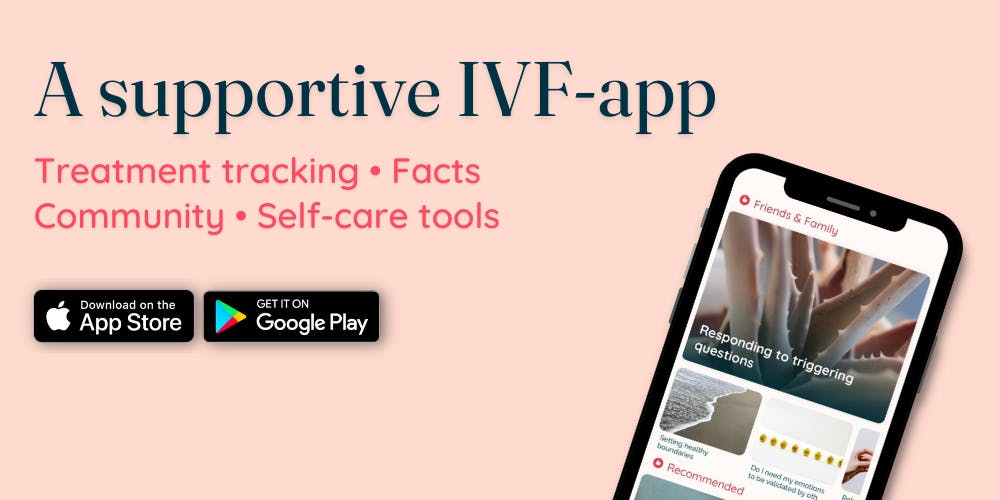Lifestyle tips for getting pregnant - Q&A with nutritionist Carolina Kaufmann
How lifestyle affects fertility is quite a complex matter - there's no black and white answers because all bodies are different. Also, fertility issues can have a range of underlying causes and many of them have nothing to do with lifestyle.
Still, fertility is most definitely related to our general health, which is of course affected by how we live.
We invited nutritionist Carolina Kaufmann to respond to some of your questions about lifestyle and fertility.
Is there a specific diet that boosts fertility?
There is no one diet to follow that will magically improve fertility. And different diets can affect different people differently. But there are definitely certain food groups that are good for our general health and thus fertility, and some foods that are not good.
Good foods
- Antioxidant-rich foods like green leaf, berries and pomegranates are good for both men and women - especially to boost sperm- and egg quality.
- Healthy fats play a huge role in stabilizing hormones (and in turn the female cycle). Example of these healthy fats, that include a lot of Omega 3 are nuts and seeds, salmon (preferably wild salmon), mackerel and sardines. As well as egg yolks from pasture-raised chickens (the diet of animals affects how health they are for us).
- Making sure the body is boosted with vitamins and nutrients is essential and all these can be gained from food. A few examples are liver and bone thatboth contain a lot of highly absorbable iron as well as other important vitamins), egg yolks that contain iron, calcium, zinc, vitamin B6, folate, and vitamin B12, and citrus fruits which is a great source of vitamin C. Sunflower seed kernels are also rich in vitamin E and packed with folate and selenium.
Bad foods
- “Bad” fats (trans fats).
- Excessive amounts of alcohol (a glass of wine is not an excessive amount FYI).
- Caffeine can affect fertility - more on that below.
- Smoking is perhaps not a food, but it’s not good for fertility; it harms eggs and sperm.
I'm trying to conceive, how can I improve egg quality?
Eggs (and sperm) are cells and just like other cells in our body, they’re negatively affected by so called oxidative stress. One factor that causes oxidative stress is age; same process as when our skin cells age and we wrinkle.
So this is why the number of normal eggs decreases with age - something we can’t do that much about. However there’s also lifestyle factors that create oxidative stress. Smoking, alcohol and trans fats (to a high extent is found in fast food) for example. So avoiding these can be beneficial for egg quality.
This is also why antioxidants are good for egg (and sperm) quality - because antioxidants prevent oxidative stress. In addition to green leaf, berries and pomegranates, herbs like turmeric, oregano and parsley are also filled with antioxidants.
Is a vegetarian or vegan diet preferred when you want to optimize fertility?
Vegetarians and vegans often eat more greens than carnivores which is great, and many of them have no fertility issues.
As we’ve talked about, fats are essential though and when we look at women with so-called hypothalamic deficiency, vegetarians/vegans are overrepresented there.
What is hypothalamic deficiency? Basically being underweight or quick weight loss, having nutrient deficiencies, overtraining or mental stress, all disturbe the function of the hypothalamus in your brain which in turn disturbes the sex hormones, eventually often leading to estrogen deficiency and a disturbed ovualtion which of course impacts fertility negatively.
So basically - if you notice signs of low estrogen (light bleedings, vaginal dryness etc.) or an irregular cycle, getting your hormones tested and trying to add animalic fats to your diet could be a good idea.
Remember, no matter which diet you have, it’s always important to eat varied, healthy food and make sure that you get the nutrients and vitamins you need - especially before and when trying to conceive.
Iron is easier absorbed through an animal based diet than from a plant-based diet. But making sure you get enough of vitamin C if eating mostly a plant-based diet can help you to absorb the iron better.
Could you please explain how coffee or caffeine can affect fertility?
First of all, caffeine is found not just in coffee but also in tea, power drinks and chocolate.
Caffeine has what we call a diuretic effect, meaning it leaves our systems pretty quick. So too much caffeine can also drain the body from important nutrients that we haven't had the ability to absorb yet.
Also the enzyme breaking down estrogen, also breaks down caffeine (and alcohol). So basically too much caffeine can lead to estrogen not being broken down as efficiently as it should creating too much of it.
Estrogen dominance is when there is too much estrogen in relation to another hormone called progesterone and this can cause PMS, period cramps, swollen breasts etc.
Many women notice a more stable cycle (which is positive for fertility) and less issues like PMS and period pain when reducing caffeine. Often the effect can be seen quite quickly, so you’ll have to try if it works for you.
2022-12-18
A mental health app for your fertility journey
Evidence-based self-care tools and facts. Supportive community. Treatment tracking.
Previous articles
Breaking the silence: Infertility and stress during stress awareness month
2025-04-14
Exciting news: Tilly is now part of Rhea
2025-03-31
How infertility impacts men's mental health and ways to cope
2024-11-22
Baby Loss Awareness Week: coming together to support those affected
2024-10-14
PCOS and mental health: a crucial connection
2024-09-25
How to support a friend struggling with involuntary childlessness: A guide for loved ones
2024-09-17
